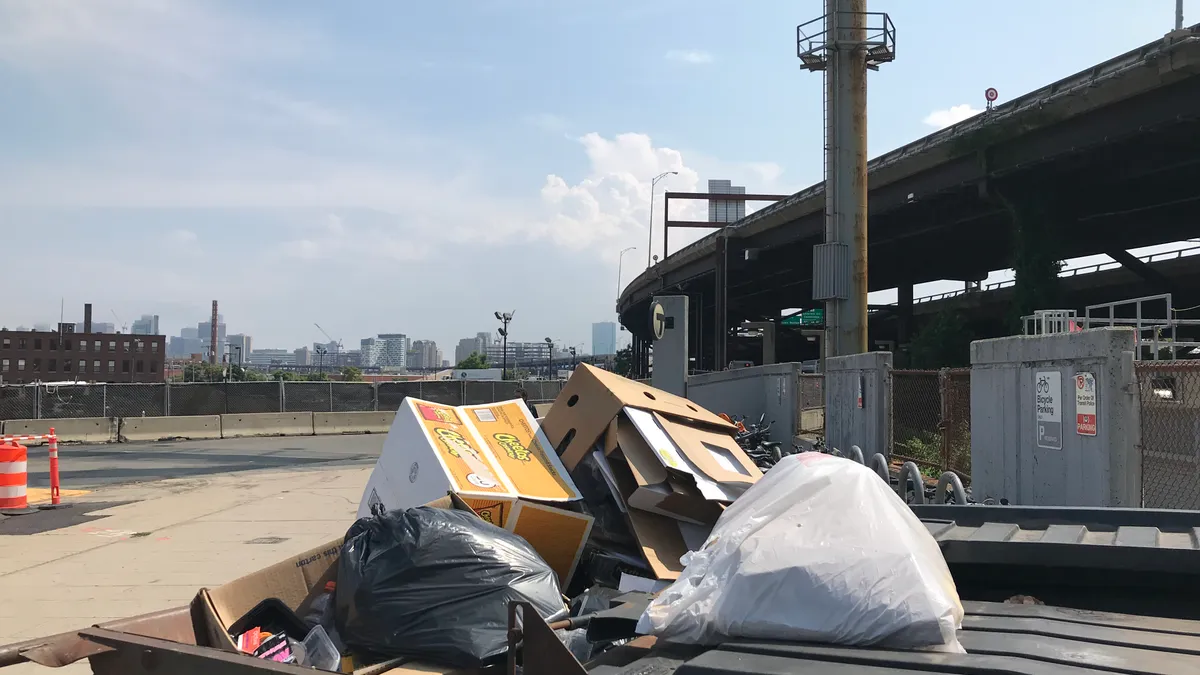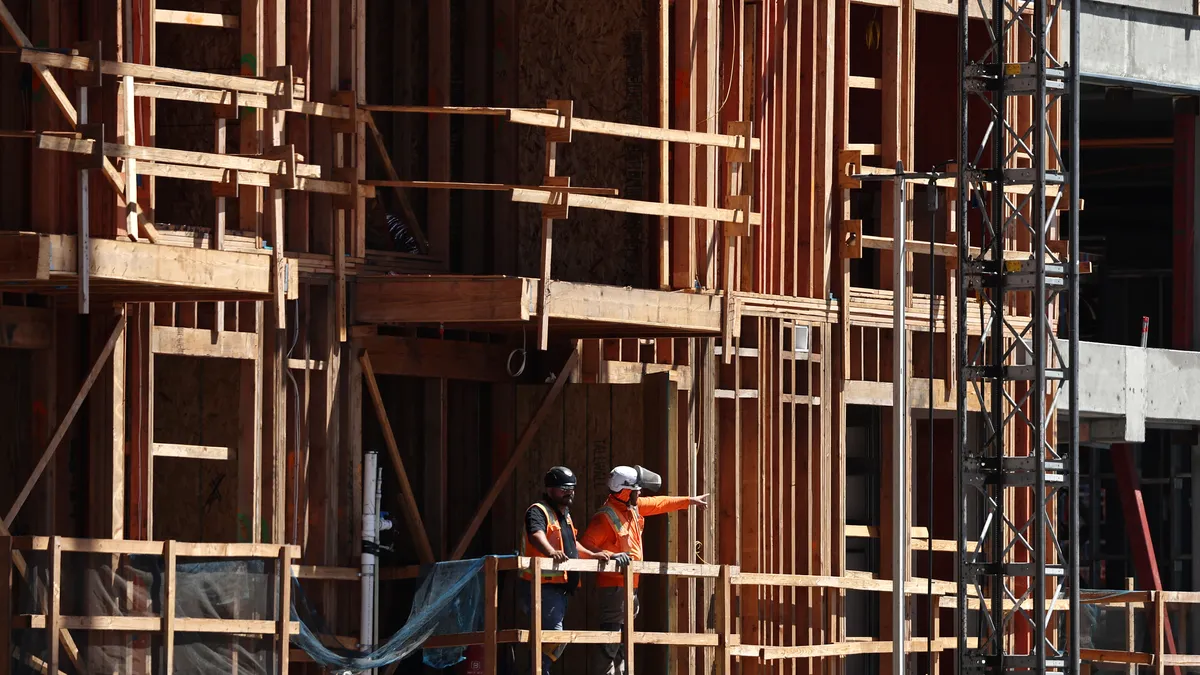Dive Brief:
- Boston's Zero Waste Advisory Committee has been presented with 19 initiatives, roughly estimated to cost $15.3 million per year, that consultants believe could get the city to an overall 80% diversion rate by 2030. A final plan, based on committee feedback and ongoing stakeholder meetings, is expected by this fall.
- Three particular initiatives stood out in terms of boosting the combined residential and commercial diversion rate from 25%: establishing a new residential organics collection system and expanding industrial, commercial and institutional (ICI) organics diversion; new separation requirements and better enforcement of existing state or local recycling rules; and new minimum service requirements for ICI haulers, including incentive-based pricing.
- Other initiatives also stood out in terms of potential greenhouse gas reduction and long-term benefits. These include establishing collection service (and potentially repair or recycling facilities) for reusable items; charging residents for their waste based on a "Save Money and Reduce Trash" (SMART) rate system; and launching a behavioral change marketing campaign using materials from the Massachusetts Department of Environmental Protection (DEP).
Dive Insight:
Since this process formally began in February, the consulting team and many Zero Waste Advisory Committee (ZWAC) members have sought to keep a broad spectrum of options on the table. Some, such as commercial waste franchising or wage equity for recycling workers, appear to have dropped off. Though that list is still a long one, including many items that could need new legislation or outside funding.
Ensuring continued momentum once the final list of recommendations is delivered to Mayor Marty Walsh will require ongoing advocacy — both from inside and outside city government — as well as potential private sector backing. That would be particularly true for a suggestion that the city could either purchase or construct its own transfer station and materials recovery facility to gain independence from regional market options.
For certain items, such as residential organics collection, political support is already growing. The Boston City Council held a committee hearing on this topic last month and the members in attendance were eager for action. At the time, city officials estimated that startup capital costs could be around $14 million. Though questions were raised about the appropriate processing option for this material and whether sufficient capacity exists in the region. Recent information from the DEP indicates that capacity continues to grow based on supply from the 2014 commercial diversion mandate.
Expanding diversion requirements beyond those mandated for organics, or other materials, have been met with some skepticism from ICI representatives on the ZWAC so far. They prefer a more voluntary or incentive-based approach. Questions have also been raised about how potential mandates, or fees through a SMART system, would affect low-income residents.
Beyond all of these bigger ticket items, in terms of financial or political capital, the consulting team also outlined many that could collectively help move the needle. This includes more recycling at city buildings, leading buy example on procurement, requiring venues or events to go "zero waste," recognizing achievements via existing awards programs and providing grants for small-scale community projects.
As recognized by the consultants, all of this is coming together at a time when recycling markets are in historic upheaval. Massachusetts continues to feel those financial effects, making the need for market development and economic planning even greater than when this process was first launched more than a year ago.
The consultants have promised to make that a key part of the final report and also pointed out that Boston is in a unique position to be the first city crafting a "zero waste" plan with all of these post-China factors in mind.












